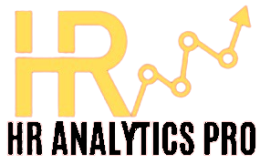A Comprehensive Guide to 15 Roles and Responsibilities of HR
January 14, 2024 2024-03-01 13:38A Comprehensive Guide to 15 Roles and Responsibilities of HR
A Comprehensive Guide to 15 Roles and Responsibilities of HR
15 Essential Functions of HR: A Comprehensive Guide to HR Roles and Responsibilities
Introduction
Human Resources (HR) is not just about hiring and payroll. It’s the backbone of organizational success, playing a pivotal role in shaping company culture and ensuring employee satisfaction. In this blog, we delve into 15 key areas where HR makes a significant impact.
Understanding Human Resources
Coined by John R. Commons in 1893, the term “human resource” signifies the value of employees in achieving organizational goals. Over time, HR has evolved to manage not just disputes but the entire employee life cycle.
1. Candidate Recruitment HR begins with the hiring process. It’s a challenging yet rewarding task, focusing on fulfilling company needs and boosting overall morale.
2. Processing Company Payroll HR handles complex payroll calculations, including taxes, bonuses, and appraisals, maintaining impeccable records.
3. Implementing a Safety Program A critical role of HR is ensuring workplace safety and health, which includes initiating formal safety programs.
4. Updating and Designing Company Policy HR keeps company policies relevant, ensuring they are effectively implemented and adhered to by employees.
5. Resolving Conflicts Acting as mediators, HR resolves conflicts, minimizes workplace disputes, and investigates complaints, promoting a harmonious work environment.
6. Maintaining a Work Environment HR is instrumental in fostering a positive workplace culture, which in turn enhances productivity and reduces various organizational costs.
7. Performance Analysis HR conducts performance analyses to assess and improve employee contributions to tasks and projects.
8. Employee Engagement Engaged employees are more committed and productive. HR’s role in fostering employee engagement is crucial for organizational success.
9. Employee Retention HR’s strategies for retaining top talent include addressing grievances and ensuring job satisfaction.
10. Compensation and Benefits HR manages all aspects of employee compensation and benefits, beyond just the salary component.
11. Appraisals and Promotions HR oversees performance appraisals, ensuring transparency and effectiveness in evaluating and promoting employees.
12. Training and Development of Employees HR invests in employee training and development, aligning with changing business needs and industry trends.
13. Induction HR handles the induction process, introducing new employees to their roles and the organizational culture.
14. Conducting Survey Management HR manages surveys to gather vital feedback while maintaining employee anonymity and comfort.
15. Managing Business Partners HR represents the company in strategic partnerships and public forums, including mergers and acquisitions.
Top 5 Skills Every HR Professional Should Have
- Communication Skills
- Problem-Solving and Decision-Making Skills
- Conflict Resolution and Mediation Skills
- Adaptability and Flexibility
- Business Acumen
HR’s Impact on Employees HR promotes career advancement, employee wellbeing, continuous education opportunities, and supports managerial training, all contributing to a motivated and skilled workforce.
The Bottom Line HR is more than a function; it’s a strategic partner in shaping the company’s future. Its roles and responsibilities extend far beyond the conventional scope, making it a cornerstone of organizational success.






